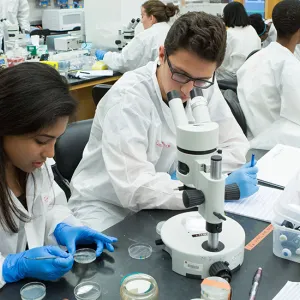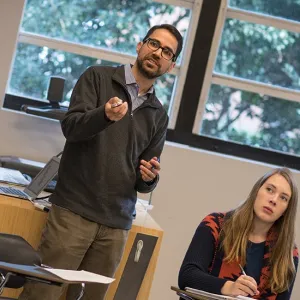A male post-doc singles out the lone female on a lab team with inappropriate comments and requests. A severely intoxicated friend passes out at a party and can’t be roused. A student passes by a classmate who is visibly overwhelmed. At a party, a male student is groping a stumbling, barely coherent female classmate and leading her upstairs.
Confronted with these scenarios, what can a student do? Intervene.
Through a 20-minute online video and corresponding 60-minute facilitated workshop, Cornell University’s Intervene program demonstrates a variety of scenarios— sexual assault, sexual harassment, intimate partner abuse, hazing, an alcohol emergency, emotional distress, and bias—and shows how students can make a difference in each of them.
Developed by Cornell Health’s Skorton Center for Health Initiatives in collaboration with the Cornell Interactive Theatre Ensemble and PhotoSynthesis Productions, the video was an 18-month project led by Laura Santacrose, a Skorton Center health initiatives coordinator, with extensive input from student focus groups and surveys. “Student feedback was critical to making the scenes realistic,” Santacrose said in a Cornell Chronicle news story about the initiative.
The resulting video effectively engages viewers and has a measurable impact. Skorton Center staff assessed the effect of the video when shown in the context of a facilitated workshop and when independently viewed online. Four weeks after participating in the workshops, under- graduate students reported greater likelihood of intervening in most of the scenarios portrayed in the film. Four weeks after viewing the video online only, undergraduate, graduate, and professional students reported a greater likelihood to intervene across several types of situations compared with a control group.
“Teaching potential bystanders how to intervene effectively is gaining recognition in college health as an important prevention strategy,” said Timothy Marchell, director of the Skorton Center. “This video breaks new ground by modeling how students can make a difference in a range of situations. It encourages students to step up and act on behalf of others.”
To help cultivate college health and well-being at campuses nationwide, Cornell University is offering the video and corresponding facilitator discussion guide free of charge at health.cornell.edu/intervene.



